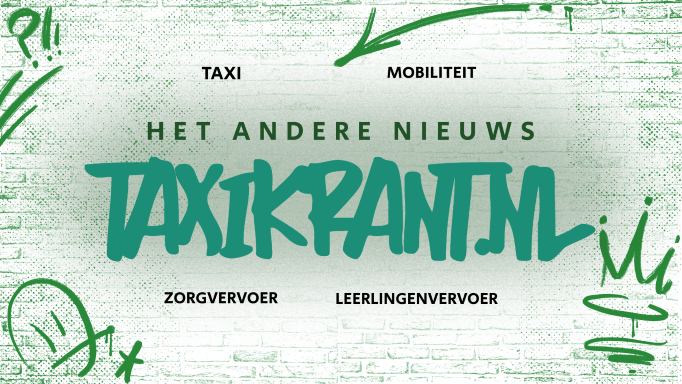This time they are all going to The Hague together.
FNV calls on all employees of all Healthcare Transport & Taxi companies to strike on December 15. Also employees who are employed by an employment agency. Due to the high degree of complexity of their work, HAP drivers are not called to strike and are only asked to participate in the actions when they are not on duty.
Earlier, Royal Dutch Transport (KNV) informed the members in an email that it hopes that the FNV union will come to its senses and decide to stop taking actions, now that a collective agreement is on the table. That agreement has so far only been accepted by the members of the CNV trade union. The employers' organization therefore hopes that FNV will decide to stop campaigning.
Central to the collective agreement that KNV Zorgtransport en Taxi and CNV Vakmensen concluded on 29 November is a wage increase of 8% with effect from 1 January 2023 and another 4% with effect from 1 January 2024. The continued payment of wages in the event of illness and the break scheme will also change. in favor of the employees. FNV could not agree with the commitments offered by the employers' organization and decided to continue striking.
no agreement
Trade union FNV previously called on all employees throughout the country of Bios Groep, Citax, Connexxion, Dorenbos, Haars Groep, Munckhof, Noot, RMC, TCR, de Vlieger, Witteveen and Willemsen de Koning to participate in a 30 hour strike. After months of negotiations, a petition with 24 signatures from drivers and a 2.500-hour strike on Friday, November 24, according to the members of the trade union FNV, the employers still do not understand how the employees are under water.
That is why they continued at more companies and more places than last time. They keep a power station in North Holland, South Holland and North Brabant action meeting and call on all employees who live or work in these provinces to come together in a central location.
During a strike, certain rules apply to employees and employers. For example, no violence may be used and threats are not allowed. Also, the work of strikers may not be taken over by non-striking colleagues or temporary workers.

Employers in the care and taxi transport sector (united in KNV Care Transport and Taxi) have previously made an ultimate attempt to arrive at a new collective labor agreement. The employers submitted an improved final offer for a collective labor agreement. The final offer has a term of eighteen months. The collective labor agreement must take effect on 1 January 2023 and will last until 30 June 2024. The employers have once again offered a wage increase of 8% as of 1 January 2023 and another 4% as of 1 January 2024. In addition, compared to the earlier final offer changes with regard to breaks and continued payment in the event of illness.
The employers want to change the current break scheme so that unpaid breaks may only be withheld if they have actually been taken. Under the current scheme, a maximum of 12,5% of the working time may be withheld on a flat-rate basis. In the employers' new proposal, in the event of illness, 80% of the salary will also be paid for the first eight weeks and then 90%, up to and including the second year of illness. The waiting day also lapses with the first sick report.
Employers are also abandoning the desire to return to the old paid time scheme. The employers do, however, propose to amend the current scheme to make it more applicable in practice. In the employers' proposal, the length of the shift can now vary per day, which is more in line with transport demand. At the same time, the proposal makes it possible for drivers to better connect private and work. The employers also propose not to apply the commuting deduction if drivers have to use a charging station that is far from their own home.
Finally, due to the too great technical challenges, employers propose to cancel the proposed online registration of services. Naturally, time registration remains mandatory, as is the mandatory provision of opportunities for the Social Fund for Mobility to check this registration.



